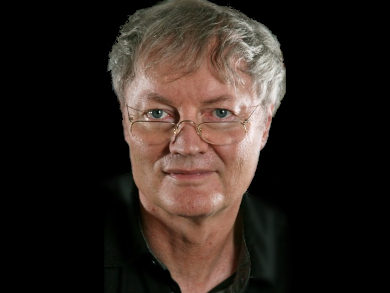Professor Michael Grätzel, Ecole Polytechnique Fédérale de Lausanne (EPFL), Switzerland, has been awarded the Paracelsus Prize 2016 by the Swiss Chemical Society (SCS). The award was presented at the SCS Fall Meeting 2016 in Zurich, Switzerland, on September 15, 2016. Grätzel is honored for his lifetime achievements, specifically for his invention and development of the dye-sensitized solar cell.
Michael Grätzel studied chemistry at the Free University Berlin, Germany, and received his Ph.D. in 1971 from the Technical University of Berlin. He worked as a postdoctoral researcher at the University of Notre Dame, IN, USA, and joined the Free University Berlin as Lecturer in 1975. In 1977, he moved to EPFL as Associate Professor and was promoted to Full Professor of Physical Chemistry in 1981. Grätzel directs the Laboratory of Photonics and Interfaces there. His research interests include photovoltaic cells, lithium ion batteries, and photo-electrochemical devices for water splitting with sunlight.
Among many other honors, Grätzel received the King Feisal International Science Prize from the King Faisal Foundation in 2015, the Albert Einstein World Award of Science from the World Cultural Council in 2012, the Millennium Technology Grand Prize from Technology Academy Finland in 2010, and the Balzan Prize from the International Balzan Prize Foundation in 2009, as well as several honorary doctorates. He is a Chairman of the Editorial Board of ChemPhysChem and a Member of the International Advisory Board of Angewandte Chemie.
Selected Publications
- Facile synthesized organic hole transporting material for perovskite solar cell with efficiency of 19.8 %,
Dongqin Bi, Bo Xu, Peng Gao, Licheng Sun, Michael Grätzel, Anders Hagfeldt,
Nano Energy 2016, 23, 138–144.
DOI: 10.1016/j.nanoen.2016.03.020 - Copper Phenanthroline as a Fast and High-Performance Redox Mediator for Dye-Sensitized Solar Cells,
Marina Freitag, Fabrizio Giordano, Wenxing Yang, Meysam Pazoki, Yan Hao, Burkhard Zietz, Michael Grätzel, Anders Hagfeldt, Gerrit Boschloo,
J. Phys. Chem. C 2016, 120, 9595–9603.
DOI: 10.1021/acs.jpcc.6b01658 - Benzotrithiophene-Based Hole-Transporting Materials for 18.2 % Perovskite Solar Cells,
Agustín Molina-Ontoria, Iwan Zimmermann, Inés Garcia-Benito, Paul Gratia, Cristina Roldán-Carmona, Sadig Aghazada, Michael Grätzel, Mohammad Khaja Nazeeruddin, Nazario Martín,
Angew. Chem. Int. Ed. 2016, 55, 6270–6274.
DOI: 10.1002/anie.201511877 - Towards optical optimization of planar monolithic perovskite/silicon-heterojunction tandem solar cells,
Steve Albrecht, Michael Saliba, Juan-Pablo Correa-Baena, Klaus Jäger, Lars Korte, Anders Hagfeldt, Michael Grätzel, Bernd Rech,
J. Opt. 2016, 18, 064012.
DOI: 10.1088/2040-8978/18/6/064012 - Long-Range Balanced Electron- and Hole-Transport Lengths in Organic-Inorganic CH3NH3PbI3,
G. Xing, N. Mathews, S. Sun, S. S. Lim, Y. M. Lam, M. Grätzel, S. Mhaisalkar, T. C. Sum,
Science 2013, 342, 344–347.
DOI: 10.1126/science.1243167 - Sequential deposition as a route to high-performance perovskite-sensitized solar cells,
Julian Burschka, Norman Pellet, Soo-Jin Moon, Robin Humphry-Baker, Peng Gao, Mohammad K. Nazeeruddin, Michael Grätzel,
Nature 2013, 499, 316–319.
DOI: 10.1038/nature12340 - Lead Iodide Perovskite Sensitized All-Solid-State Submicron Thin Film Mesoscopic Solar Cell with Efficiency Exceeding 9 %,
Hui-Seon Kim, Chang-Ryul Lee, Jeong-Hyeok Im, Ki-Beom Lee, Thomas Moehl, Arianna Marchioro, Soo-Jin Moon, Robin Humphry-Baker, Jun-Ho Yum, Jacques E. Moser, Michael Grätzel, Nam-Gyu Park,
Sci. Rep. 2012.
DOI: 10.1038/srep00591 - Porphyrin-Sensitized Solar Cells with Cobalt (II/III)-Based Redox Electrolyte Exceed 12 Percent Efficiency,
A. Yella, H.-W. Lee, H. N. Tsao, C. Yi, A. K. Chandiran, M. K. Nazeeruddin, E. W.-G. Diau, C.-Y. Yeh, S. M. Zakeeruddin, M. Grätzel,
Science 2011, 334, 629–634.
DOI: 10.1126/science.1209688
Also of Interest
- Richard Schrock Awarded,
ChemViews/Jonathan Faiz,
ChemViews Mag. 2014.
The Paracelsus Prize is the highest honor of the SCS - Michael Grätzel Wins €800,000,
ChemViews Mag. 2010.
Professor Michael Grätzel was awarded the world’s largest technology prize for cheap solar cells



